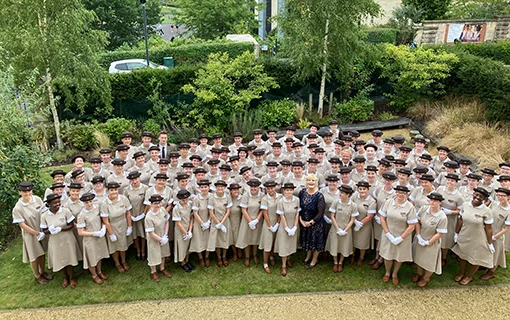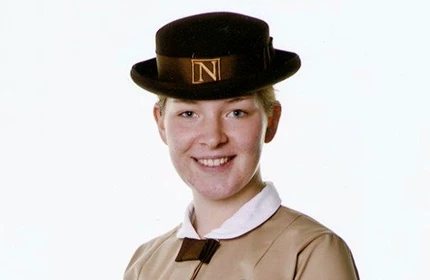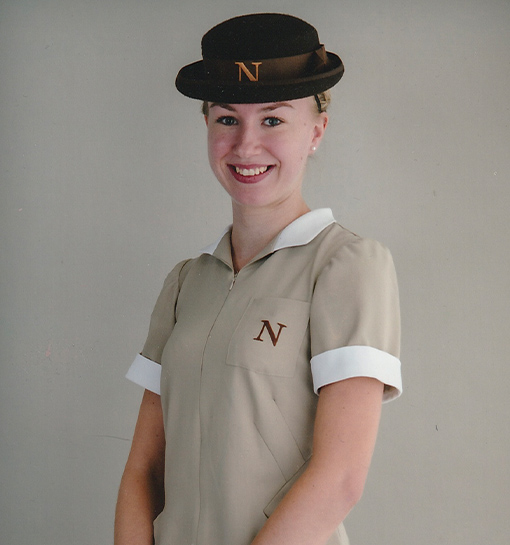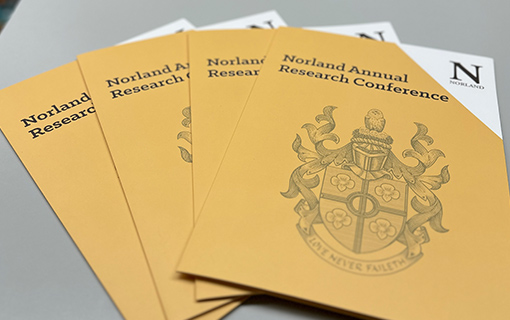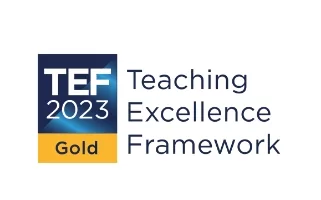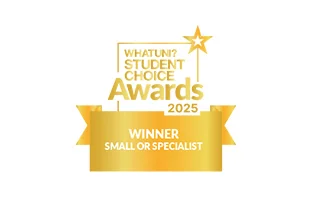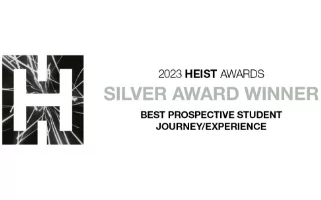International students
Discover our early childhood training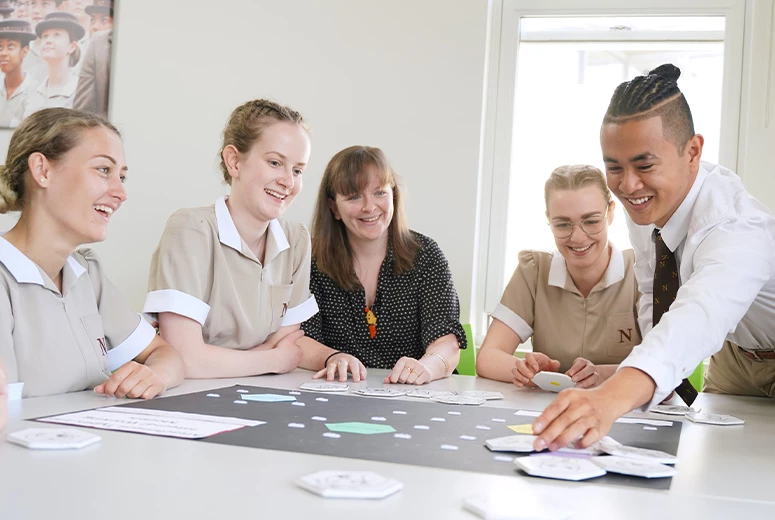
World-famous training and outstanding international career opportunities await you
Norland offers a welcoming, nurturing and inclusive community in the heart of historic Bath in south west England. Each year, we’re delighted to welcome a small number of international students who benefit from our world-famous high-quality early years training and the outstanding career opportunities and lifelong career support we offer.
As an international student, you’ll receive tailored support through the application process and throughout your studies. If you require a Student visa to study in the UK, you’ll also have access to your own dedicated Visa Manager to guide you through the visa application and immigration process and to provide specific support during your time at Norland. If you are unsure if this applies to you, check if you need a visa on GOV.UK or contact our Visa Manager.
Once you graduate as a fully-qualified Norlander, you’ll receive lifelong career support and your pick of jobs around the world through your very own dedicated employment agency. Established in parallel with Norland over 130 years ago, the Norland Agency continues to offer many more jobs than there are Norlanders seeking them in locations all around the world. With your Norland qualifications behind you, the world really will be your oyster.
As an international student, you will need to provide additional information once you have received an offer to study at Norland. This page provides information on our admissions process and aspects of student life that are relevant to international students.
Confirmation of Acceptance for Studies (CAS)
If you require a Student visa with Norland as your sponsor, you must have a valid Confirmation of Acceptance for Studies (CAS) reference number before you can begin the visa application process. Your CAS is a unique reference number that Norland will send you by email. It is not a paper document. You’ll need to enter your CAS number on your visa application form.
To issue you with a CAS, Norland must create a CAS statement. This will include information about your course and personal information we will request from you during the application process. To help us do this, you’ll need to complete the CAS questionnaire which Norland will give you. Your CAS will be issued when you meet the conditions attached to your offer of study. You must apply for your visa within six months of receiving your CAS from Norland.
After you’re issued your CAS, please carefully check the document to make sure all the details are correct. If there are any problems with your CAS please inform the Visa Manager.
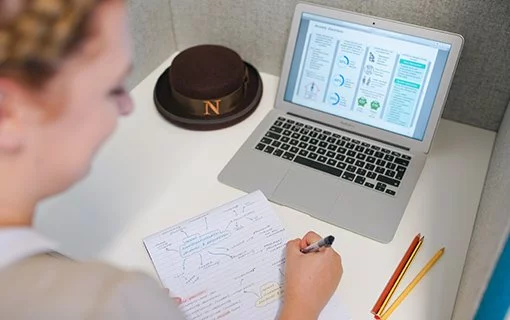
Visas and immigration
Once you have your CAS, you must apply for your visa online via the government website at the button below. The cost to apply for a Student visa from outside the UK is currently £524. If you are coming to the UK to study on a Student visa for the first time, then you must apply for your visa from your home country before you travel. You may be able to switch to a Student visa if you already have permission to be in the UK.
You cannot switch to this visa if you have one of the following visas:
- a visit visa
- a short-term Student visa
- a Parent of a Child Student visa
- a seasonal worker visa
- a domestic worker in a private household visa
- leave outside the immigration rules
If you do not meet the conditions of switching your visa from within the UK, you’ll need to return to your home country to make the application.
Documents you will need to apply
Before starting the visa application process, it is important you understand and prepare the required documents.
You must have:
- a passport that will be valid for the duration of your course
- a Confirmation of Acceptance for Studies (CAS) from Norland. This includes your SELT (Secure English Language Test) if applicable, please check with the Visa Manager to check you have the correct SELT
- proof you have enough money to support yourself and pay for your course – this will vary depending on your circumstances
- original qualifications and English language documents as listed in the ‘evidence provided’ section of your CAS
- certified translations of any of the required documents used that are not in English
- if you’re a resident of any of the countries listed here you will need a copy of your tuberculosis test results
eVisa
If your visa application is successful, you will get an eVisa. An eVisa is an online record of:
- Your immigration status
- The conditions of the type of permission you have to enter or stay in the UK
Your visa decision letter will tell you how to get access to your eVisa, by creating a UK Visas and Immigration online account. You can then use your UKVI account to view your eVisa and prove your immigration status. Norland will request and store a copy of your eVisa for our records.
Useful documents and links
For the latest updates regarding this process, we’d recommend subscribing to updates on the government’s eVisa page
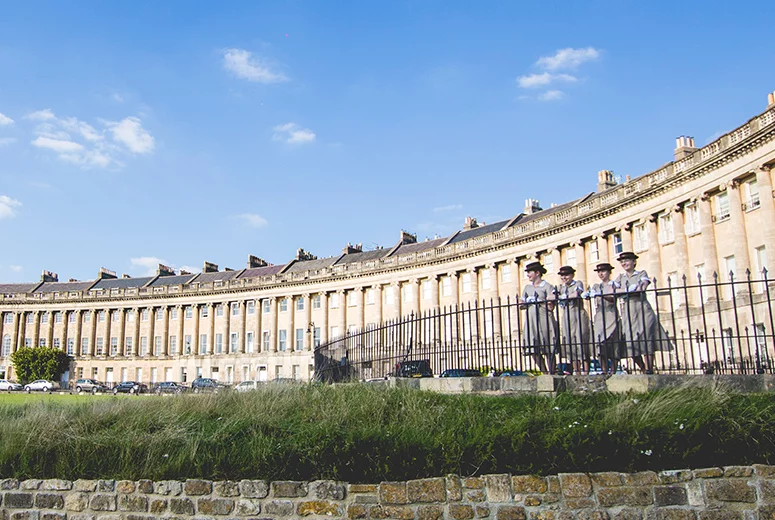
Immigration health surcharge
International students coming to the UK for six months or longer are required to pay a mandatory immigration health surcharge to access the National Health Service (NHS). As a Norland student this will apply to you. When you make your visa application online, you pay the surcharge as part of your application or when you book an appointment. For students, the current rate is £776 per year. You will be required to pay the full cost of the health surcharge upfront for the three years that you will be studying the degree (and associated diploma elements) at Norland when you make your visa application, which comes to a total of £2,328.
You can start using the NHS when you have paid the healthcare surcharge and your visa is granted. You will still need to pay for certain types of services, such as prescriptions, dental treatment and eye tests.
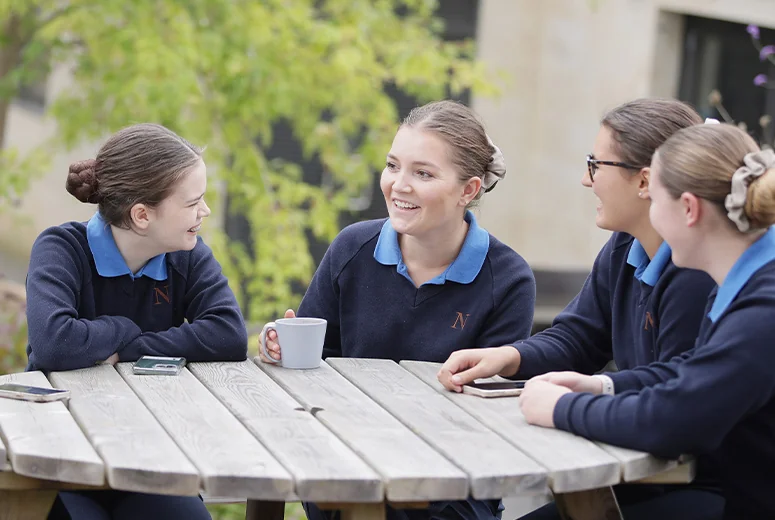
The Graduate visa and your Newly Qualified Nanny (NQN) year
The Student visa will cover your leave during the three years you complete the BA degree (and the associated Diploma elements). To stay in the UK to complete your NQN year, you will need to apply for a Graduate visa.
A Graduate visa gives you permission to stay in the UK to work for at least two years after successfully completing a course in the UK with a Student visa. When you successfully complete your BA degree at Norland, we will inform the Home Office of this. You will then be able to apply for the Graduate visa. You must apply before your Student visa expires. The cost of the visa is currently £880, which you will need to pay when you apply.
You will also need to pay the health surcharge – this is usually £1,035 for each year you’ll be in the UK. The Student Visa Manager will be on hand to support you during this process. You can find more information about the Graduate visa on the government website.
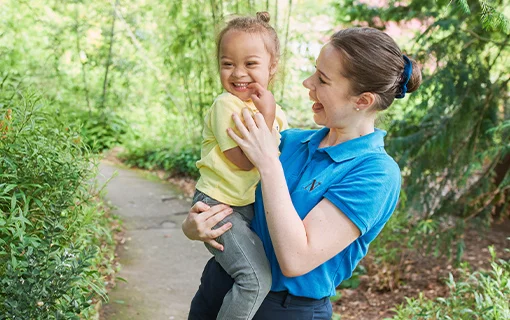
Policies for international students
Student Visa Essential Information
Download documentVisa Students Record Keeping Policy and Procedure
Download document